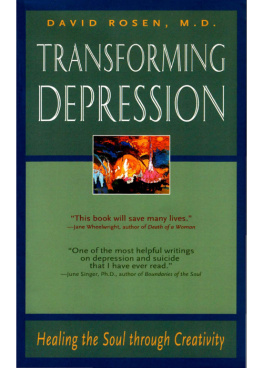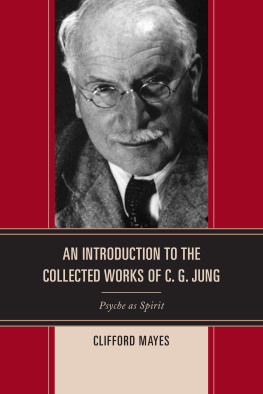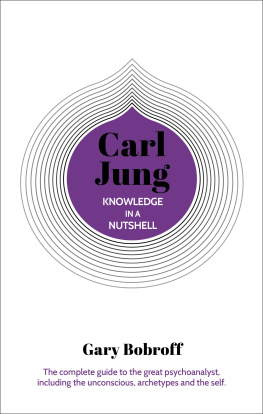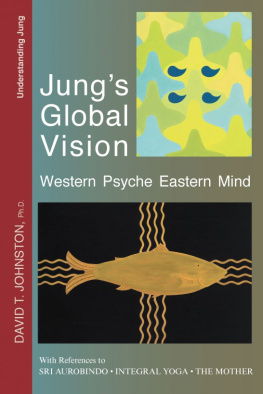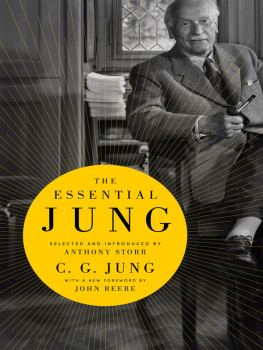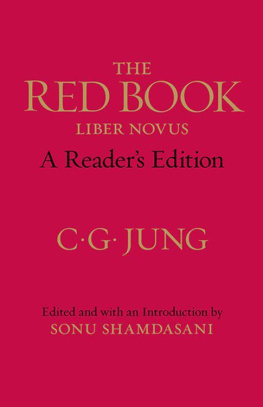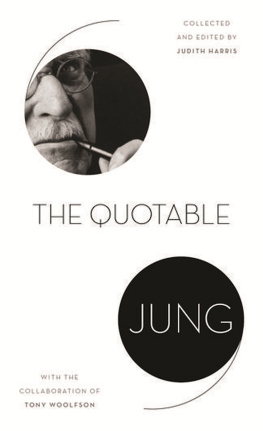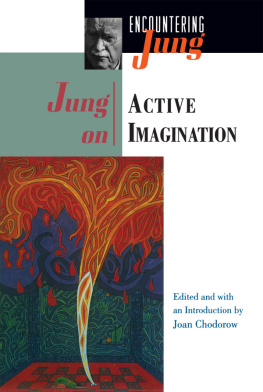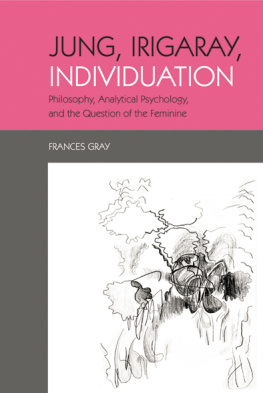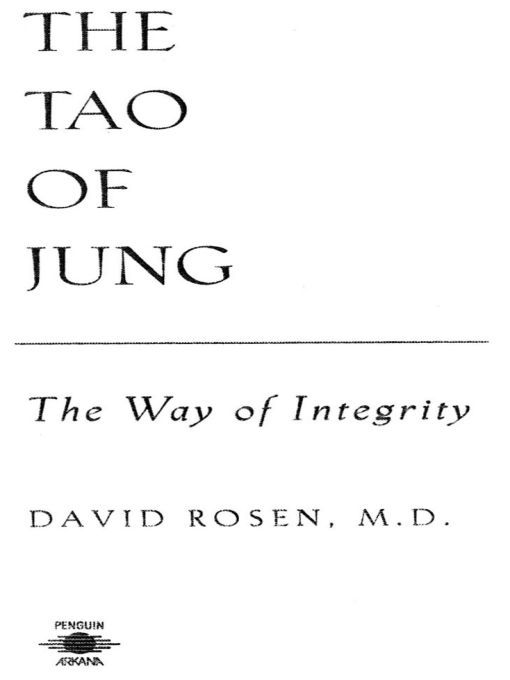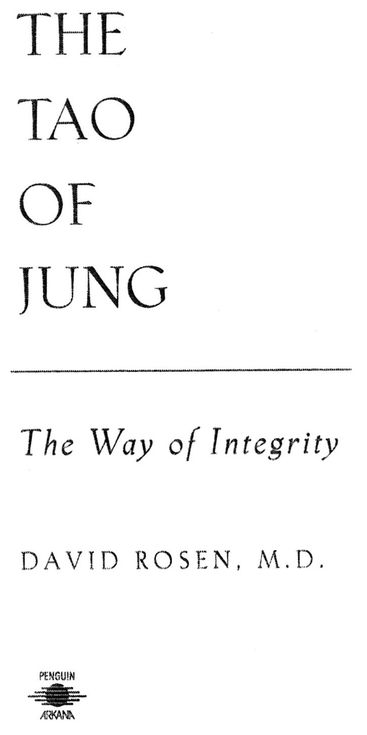Table of Contents
Praise for The Taoof Jung
The secret to entering Jungs remarkable work is to see it as a mystery... [The Tao of Jung] counters the usual modern tendency to simplify and systematize what should remain eccentric and unique.
Thomas Moore, author of Care of the Soul
The Tao, that indestructible vessel that embraces yin and yang, serves as a lens through which Dr. Rosen examines the major crises in the life of C. G. Jung. Jungs many interests, including spirituality, African folk wisdom, ancient Gnosticism, medieval alchemy, stone-carving and quantum physics, are all seen as manifestations of the Tao, the order of the universe. In this book followers of the Tao will find inspiration in the life of a man who was profoundly influenced by its wisdom. Those who read it from the standpoint of Jung the psychoanalyst will gain in appreciation of the philosophy that shaped much of his thought.
June Singer, author of Boundaries of the Soul: The Practice of Jungs Psychology
Rosen writes clearly and meticulously documents all of his references to Jung and the Tao. His work serves as a good introduction to both Taoism and Jungian psychology.
Booklist
David Rosen ... not only contributes to the analytic community, but to the lay person interested in following a life path that blends Eastern and Western thought. He talks to the reader, and is not afraid to be vulnerable. The TaoofJung does not confuse or overwhelm the reader, and with a comprehensibility and compassion, we are left with a feeling of completion and understanding that encourages self reflection.
Sally T. Sherry, Ed.M, Counseling Associates
This beautiful book links Jung with Lao Tzu in a way that throws new light on Taoism and the psychology of the Self.
Anthony Stevens, M.D., author of OnJung
An integration of the ancient but contemporary philosophy of Taoism with some of the best of the psychology of C. G. Jung, The Tao of Jung deepens our understanding of both, and enriches our self-knowledge. If youve wondered why Taoism was important to Jung or how it can reveal the hidden truths of your own life, this book is for you.
Polly Young-Eisendrath, Ph.D., Jungian analyst and author of The Giftsof Suffering:FindingInsight,Compassion,andRenewal
ARKANA THE TAO OF JUNG
David H. Rosen, M.D., is a psychiatrist and Jungian analyst who holds the only American full professorship in Jungian psychology at Texas A&M University, where he is also professor of psychiatry and behavioral science and of humanities in medicine. The author of four other books, including TransformingDepression: Healing the SoulThrough Creativity,he lives in College Station, Texas.
For Sarah and her Tao
East and West
Can no longer be kept apart.
GOETHE
Acknowledgments
For generous assistance and kind friendship while in Zrich, I sincerely thank Franz Jung, Peter Jung, and Karil Rauss. For sustaining encouragement and support, Im indebted to Marie Louise von Franz and the late C. A. Meier. A sincere thank you to Professor Mingshen Zhou, Hallie Duke, and Michael McCloud for early research and meaningful discussions. I am beholden and grateful to the estate of C. G. Jung for permission to reproduce eleven pictures, paintings, and photos of and by C. G. Jung. A particular acknowledgment is made to Hing Wah Hatch, a Chinese-American artist, who did the extraordinary calligraphy. I express deep gratitude to the following readers and critics, who helped to make this a better book: Kathi Appelt, Deborah Brock, Mary Lenn Dixon, Maria-Cristina Garcia, Holly Huston, Carol Lawson, Robert Newman, Ellen Russon, Arnold Vedlitz, and Joel Weishaus. A special acknowledgment and thank you is extended to Jacinta Frawley, my typist in Zrich and my initial reader and critic. As a Jungian analyst in training, Jacinta also brought to bear knowledge of analytical psychology as well as keen questions regarding misunderstandings and areas that needed clarification. I will forever be grateful to Jacinta, her good husband, Oliver, and little Timothy, who was born during the writing of the initial manuscript. I also want to express my extreme gratitude to Amy Hunnicutt, my Texas typist, who was always cheerful and competent throughout the preparation of the final manuscript. In addition, heartfelt thanks are due my literary agent, Ned Leavitt, and my editor and assistant editor at Viking Penguin, David Stanford and Kristine Puopolo, respectively.
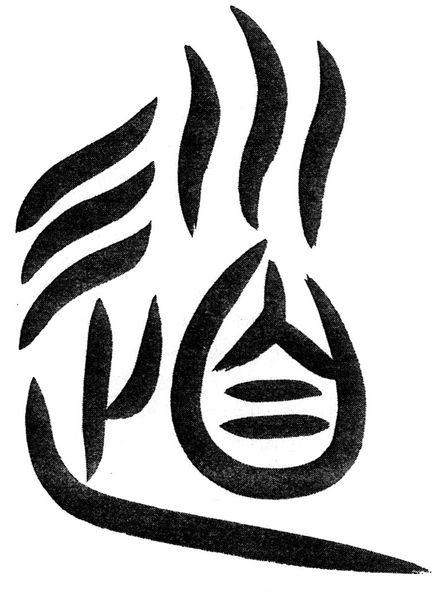
The Tao
The Tao
The Tao (the Way) is both fixed and moving at the same time. The Tao governs the individual just as it does visible and invisible nature (earth and heaven). On the left side of the ancient Chinese pictograph, which is linked to the earth, the upper part signifies going step-by-step, but the line underneath connotes standing still. On the right side is a head with hair above, which is associated with heaven, and interpreted as the beginning or source. The original meaning of the whole pictograph is of the Way, which, though fixed itself, leads from beginning to end and back to the beginning.
Preface
Life can only be understood hackwards: but it must be lived forwards.
SREN KIERKEGAARD
I was drawn to Taoism long ago, when I first read Lao Tzu. I felt he was writing to me. It was the same experience I had when I first read Carl Jung. Gradually, I noticed that Jung himself, from a very early age, was Taoist in his approach to life. This book was conceived when I brought these two important interests of mine together and realized that they were like streams flowing into the same river.
The Tao ofjung is about Jungs way, but it also reflects my way. An undertaking such as this is bound to be personal. After I arrived in Zurich, where I wrote this book, I came across a passage in a letter of Jungs that spoke to me:
... be simple and always take the next step. You neednt see it in advance, but you can look back at it afterwards. There is no how of life, one just does it.... It seems, however, to be terribly difficult for you not to be complicated and to do what is simple and closest to hand.... So climb down from the mountain of your humility and follow your nose. That is your way.
On the eve of my trip to Switzerland, I had had an inspiring dream: I was in a place that looked and felt like the Swiss Alps. I was with a woman, not anyone I knew, but she seemed like a friend. Far below was a mountain village with a river running through it. There was a chute going straight down to the village, but I did not take this shortcut. Rather I walked slowly and descended with the woman.
In the dream, the woman represents my creative muse, anima, or soul. The dream is related to the Tao in that it signaled me to move forward and proceed slowly and naturally down the mountain path together with my feminine side.
Jung posited that dreams are messages to us from the ultimate creative source: the Self (or Tao). My dream, therefore, affirmed my decision to go alone to Zurich to write


